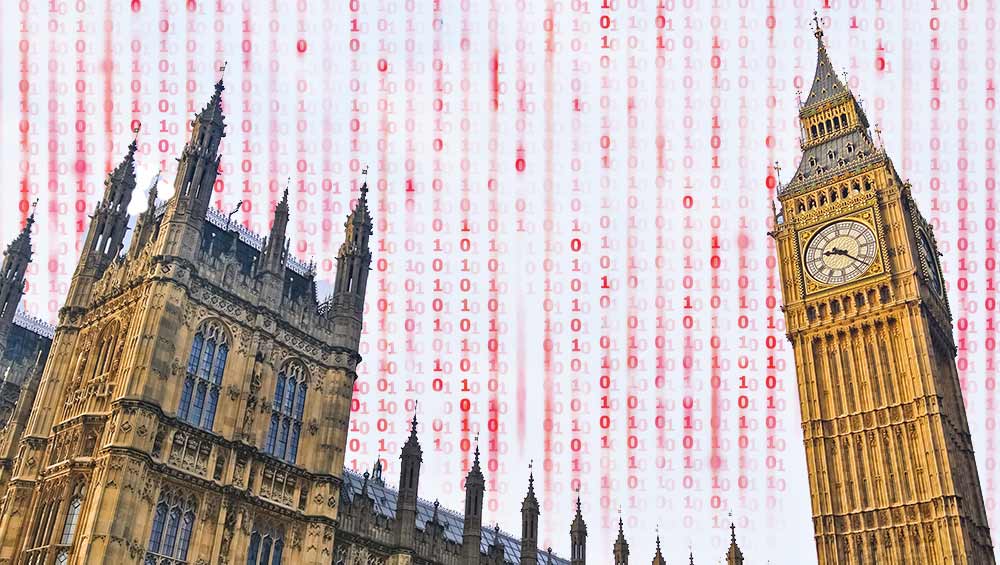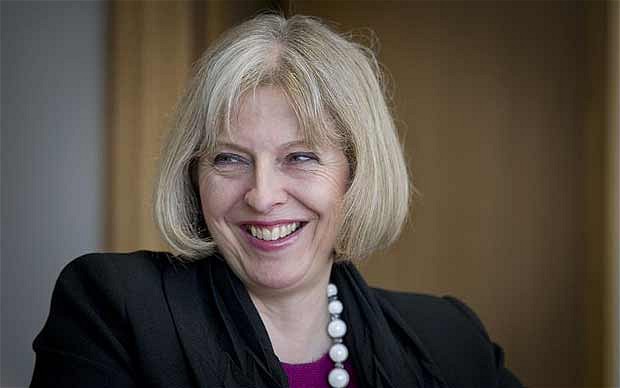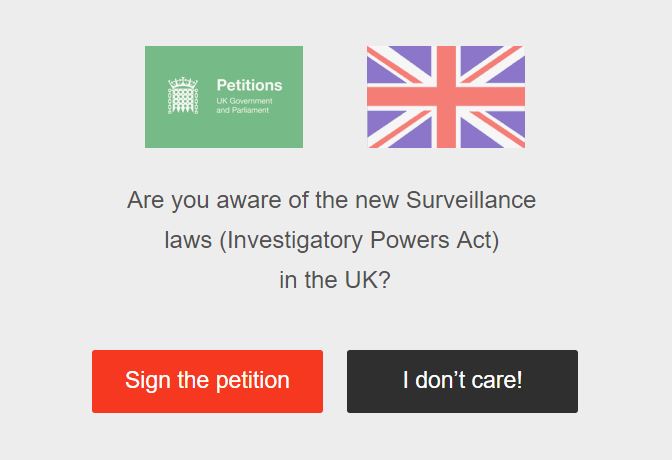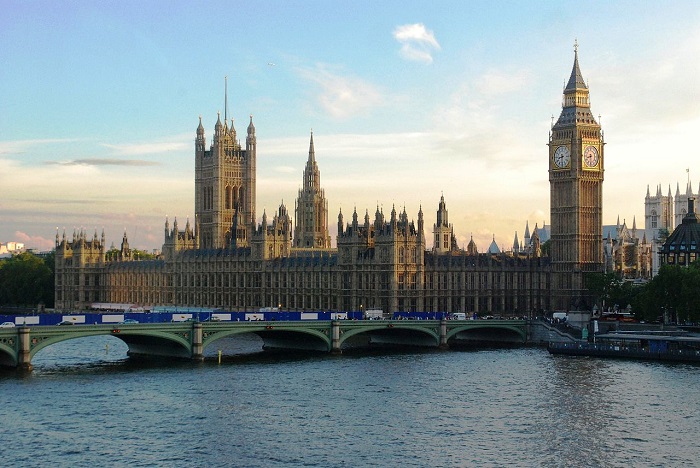Apple mauls UK government over online surveillance
Cupertino urges changes to “Snooper’s Charter”


Sign up today and you will receive a free copy of our Future Focus 2025 report - the leading guidance on AI, cybersecurity and other IT challenges as per 700+ senior executives
You are now subscribed
Your newsletter sign-up was successful
Apple has called on the UK government to make changes to the Investigatory Powers Bill as the iPhone maker fears that if the law was enacted in its present state it would radically alter customers' security and privacy.
The bill is currently being scrutinised by a parliamentary committee. In a submission to the committee, Apple said that it believed "it would be wrong to weaken security for hundreds of millions of law-abiding customers so that it will also be weaker for the very few who pose a threat."
"In this rapidly evolving cyber threat environment, companies should remain free to implement strong encryption to protect customers," it added.
Apple underlined a number of areas where it wants to see changes. It said the bill would grant the government powers to demand Apple change the way iMessages works and this, the company claimed, would weaken its encryption and allow security services to eavesdrop on the service for the first time. At present, iMessage is set up so that even Apple cannot decrypt messages passing through the system.
The tech giant also claimed that the language in the bill could be interpreted widely and force it to create backdoors to allow security agencies access. Such a backdoor would make users' data less secure, Apple argued.
"The government does not know in advance which individuals will become targets of investigation, so the encryption system necessarily would need to be compromised for everyone," the statement said.
It continued: "The bill threatens to hurt law-abiding citizens in its effort to combat the few bad actors who have a variety of ways to carry out their attacks. The creation of backdoors and intercept capabilities would weaken the protections built into Apple products and endanger all our customers. A key left under the doormat would not just be there for the good guys. The bad guys would find it too."
Sign up today and you will receive a free copy of our Future Focus 2025 report - the leading guidance on AI, cybersecurity and other IT challenges as per 700+ senior executives
Home Secretary Theresa May's bill would legally require companies, such as Apple, to hand over data on devices. Security agencies would also be allowed to tamper with equipment to extract data from a device.
Apple said that if companies were forced to comply with warrants for information, or snoop on their customers on behalf of governments, other countries would demand the same.
It added that the law would "force non-UK companies to take actions that violate the laws of their home countries".
Apple continued: "This would immobilise substantial portions of the tech sector and spark serious international conflicts. It would also likely be the catalyst for other countries to enact similar laws, paralysing multinational corporations under the weight of what could be dozens or hundreds of contradictory country-specific laws.
"Those businesses affected will have to cope with a set of overlapping foreign and domestic laws. When these laws inevitably conflict, the businesses will be left having to arbitrate between them, knowing that in doing so they might risk sanctions. That is an unreasonable position to be placed in."
Apple CEO Tim Cook last month warned that the bill would do nothing to stop criminals.
"We believe very strongly in end-to-end encryption and no back doors," Cook told The Telegraph. "We don't think people want us to read their messages. We don't feel we have the right to read their emails."
Cook continued: "Any back door is a back door for everyone. Everybody wants to crack down on terrorists. Everybody wants to be secure. The question is how. Opening a back door can have very dire consequences."
Rene Millman is a freelance writer and broadcaster who covers cybersecurity, AI, IoT, and the cloud. He also works as a contributing analyst at GigaOm and has previously worked as an analyst for Gartner covering the infrastructure market. He has made numerous television appearances to give his views and expertise on technology trends and companies that affect and shape our lives. You can follow Rene Millman on Twitter.
-
 ITPro Best of Show NAB 2026 awards now open for entries
ITPro Best of Show NAB 2026 awards now open for entriesThe awards are a fantastic opportunity for companies to stand out at one of the industry's most attended shows
-
 Mistral CEO Arthur Mensch thinks 50% of SaaS solutions could be supplanted by AI
Mistral CEO Arthur Mensch thinks 50% of SaaS solutions could be supplanted by AINews Mensch’s comments come amidst rising concerns about the impact of AI on traditional software
-
 Tim Cook disagrees with Donald Trump’s response to Charlottesville: “Hate is a cancer”
Tim Cook disagrees with Donald Trump’s response to Charlottesville: “Hate is a cancer”News Apple’s Tim Cook said there is no moral equivalence between white supremacists and those that oppose them
-
 UK government's draft spying powers get leaked online
UK government's draft spying powers get leaked onlineNews Open Rights Group lifts curtain on Home Office's secretive consultation
-
 Liberty hits crowdfunding goal to take on Snooper's Charter
Liberty hits crowdfunding goal to take on Snooper's CharterNews Campaign group raises £40,000 to finance legal challenge against the government
-
 Blow for Snoopers Charter as EU court bans mass data collection
Blow for Snoopers Charter as EU court bans mass data collectionNews A legal challenge brought against DRIPA could take out its successor
-
 Porn site xHamster protests Snooper's Charter a week too late
Porn site xHamster protests Snooper's Charter a week too lateNews xHamster pushes visitors to sign anti-surveillance petition
-
 Investigatory Powers: Expect less scrutiny now Theresa May is Prime Minister
Investigatory Powers: Expect less scrutiny now Theresa May is Prime MinisterAnalysis Experts predict Theresa May's rise to PM will give the Snooper's Charter an easier ride
-
 Investigatory Powers bill’s security backdoors ‘won’t make iPhone illegal’
Investigatory Powers bill’s security backdoors ‘won’t make iPhone illegal’News Encryption backdoors survive proposed House of Lords amendments
-
 House of Lords hits out at Snooper's Charter
House of Lords hits out at Snooper's CharterNews Privacy and practicality worries could give the IP Bill a rough ride through the upper house
